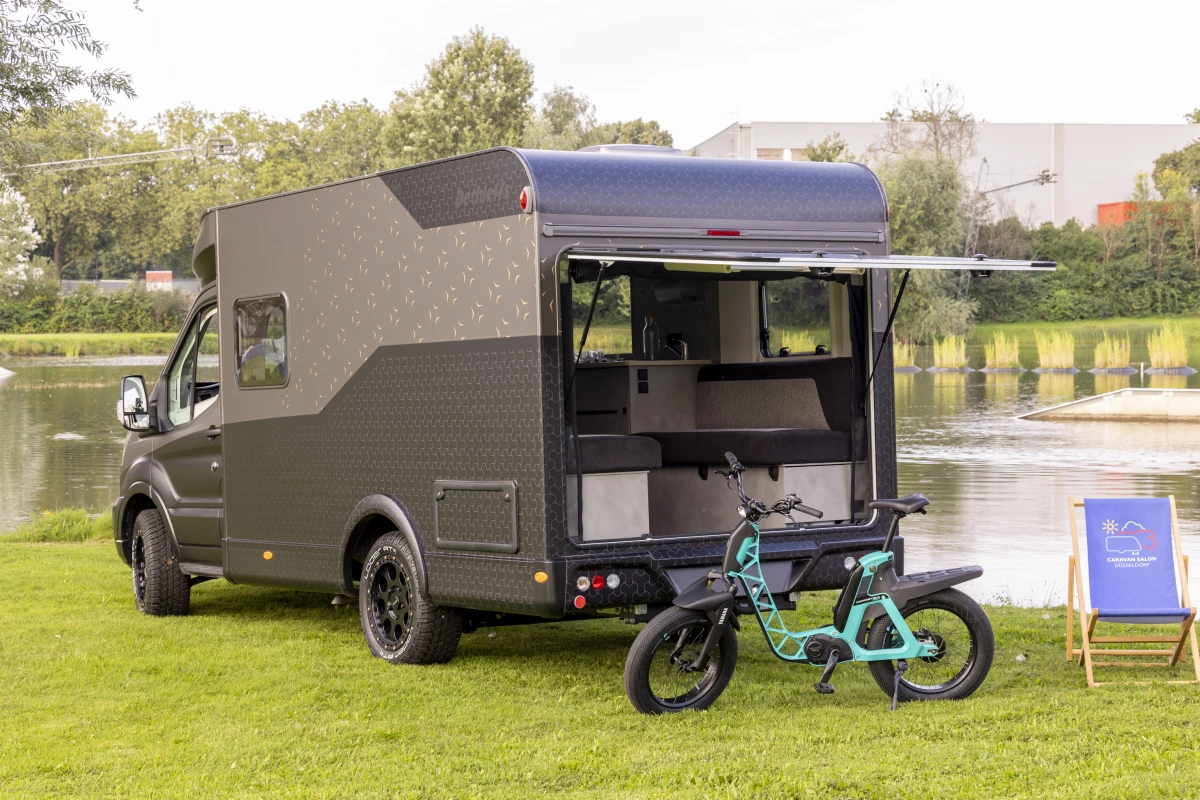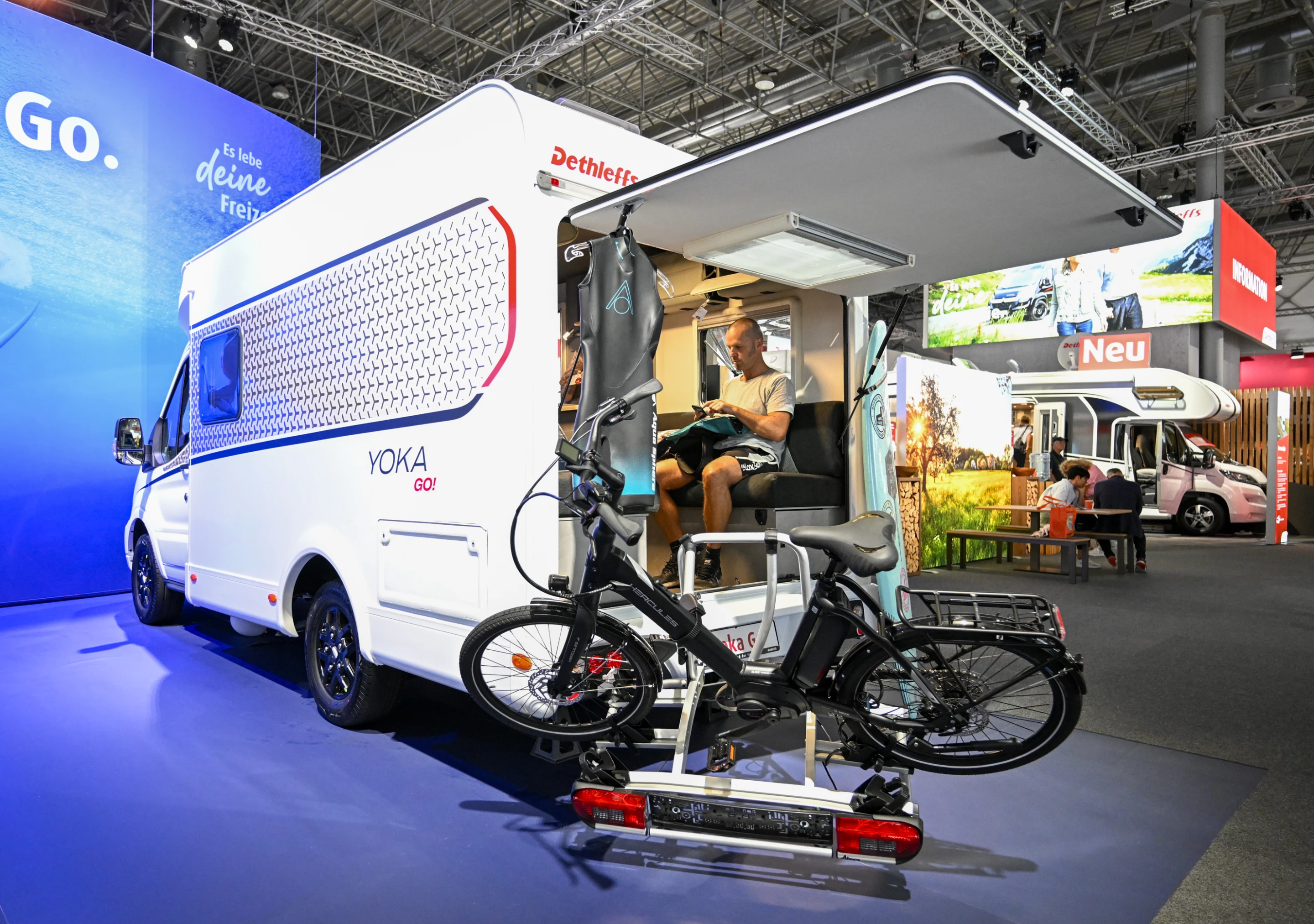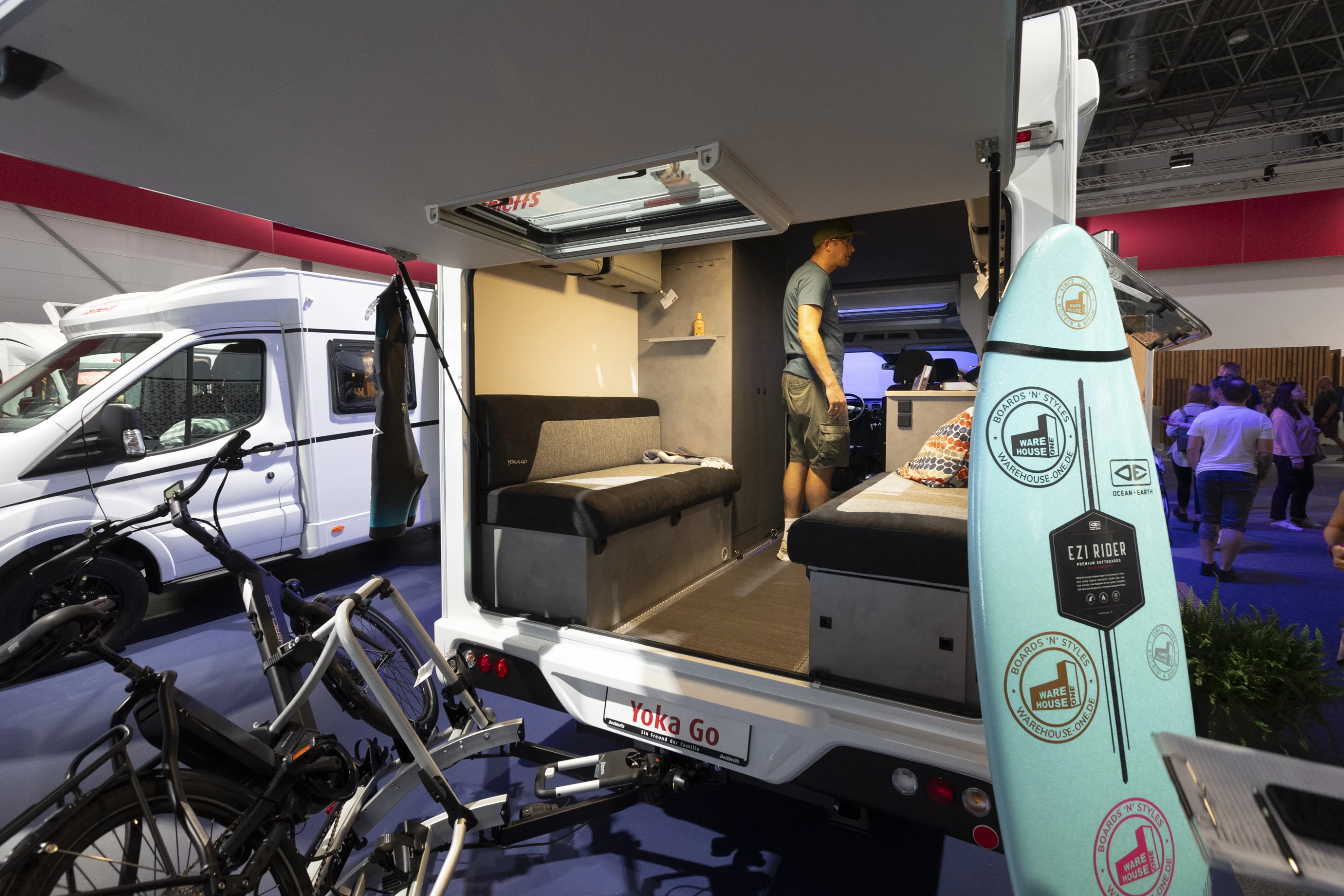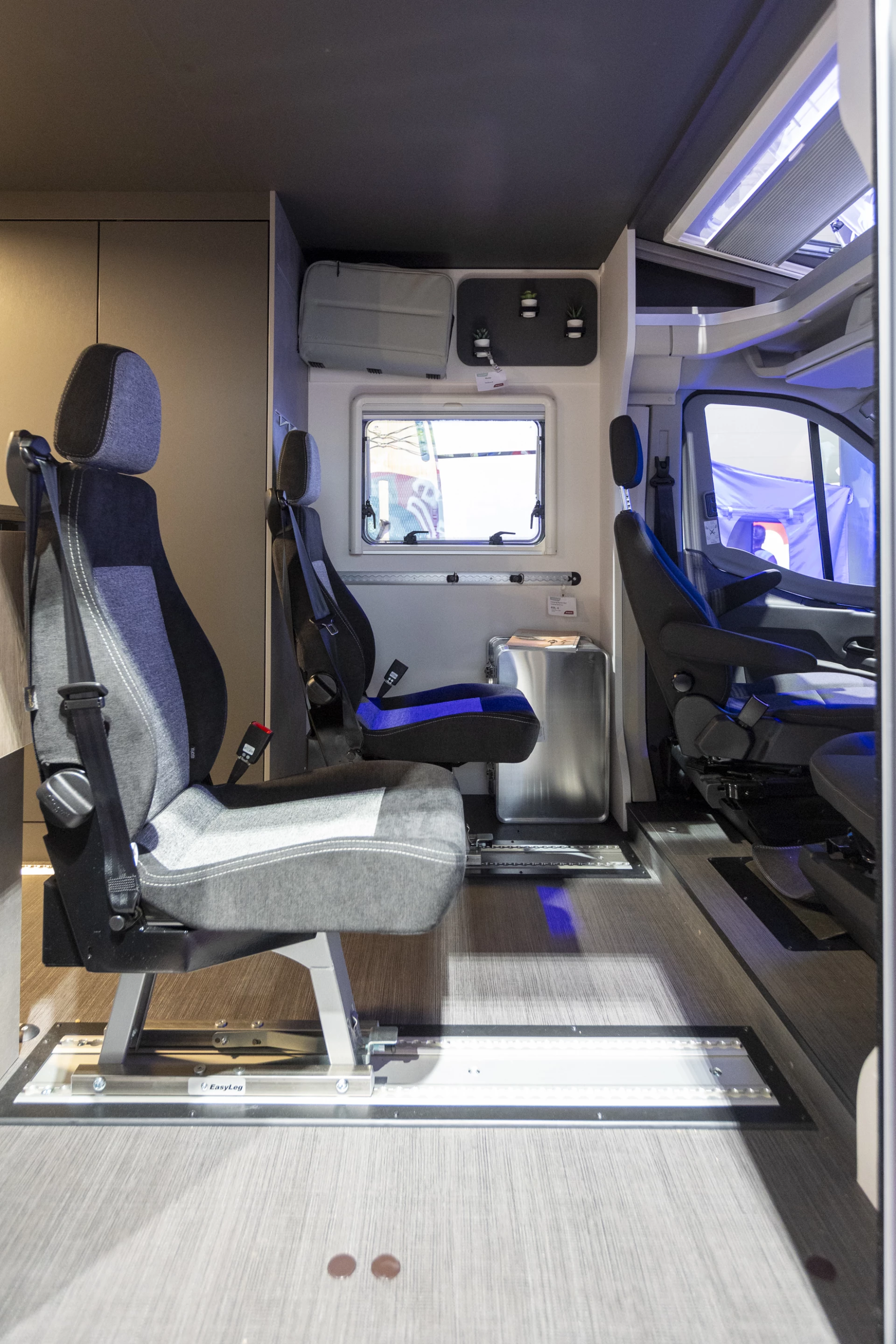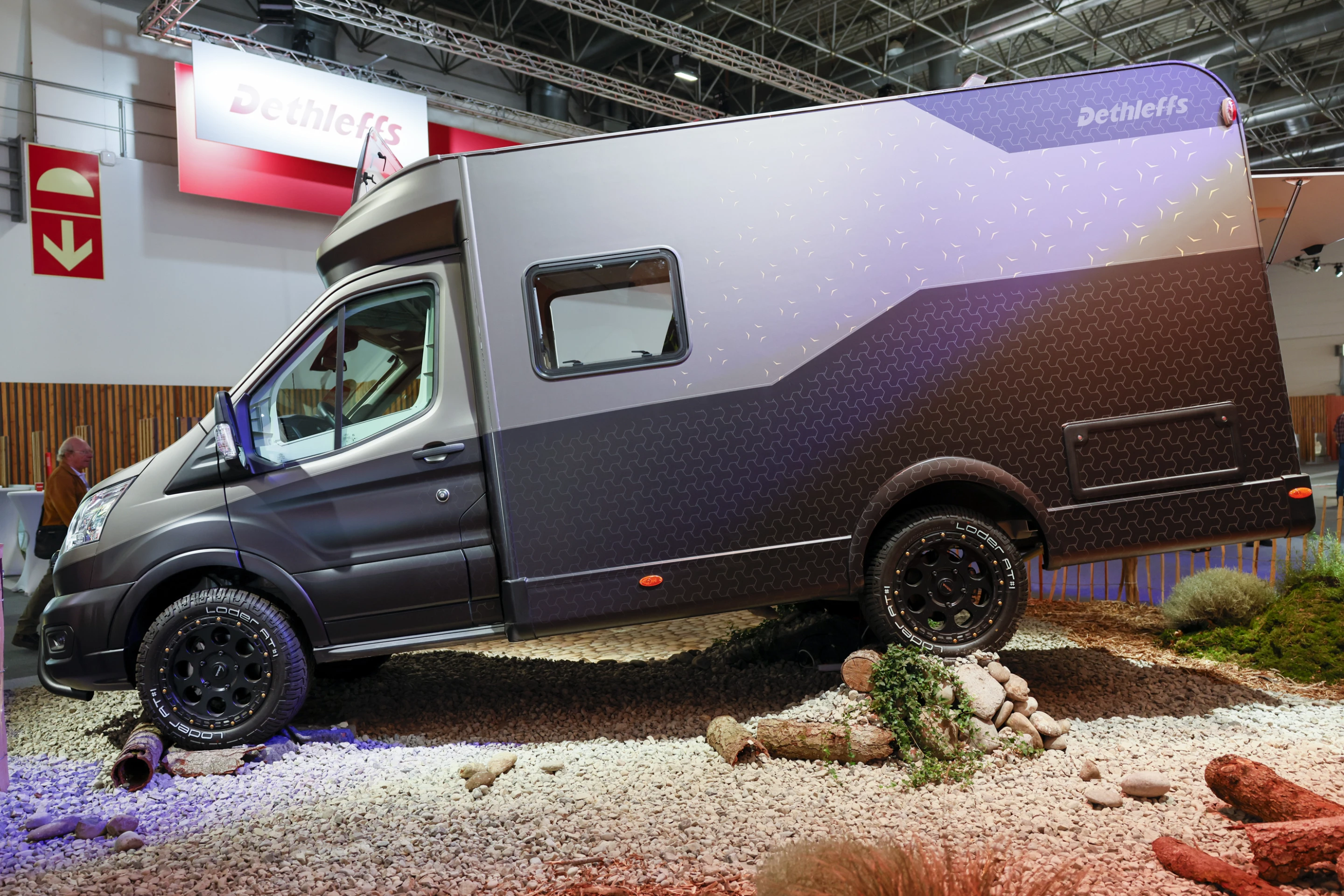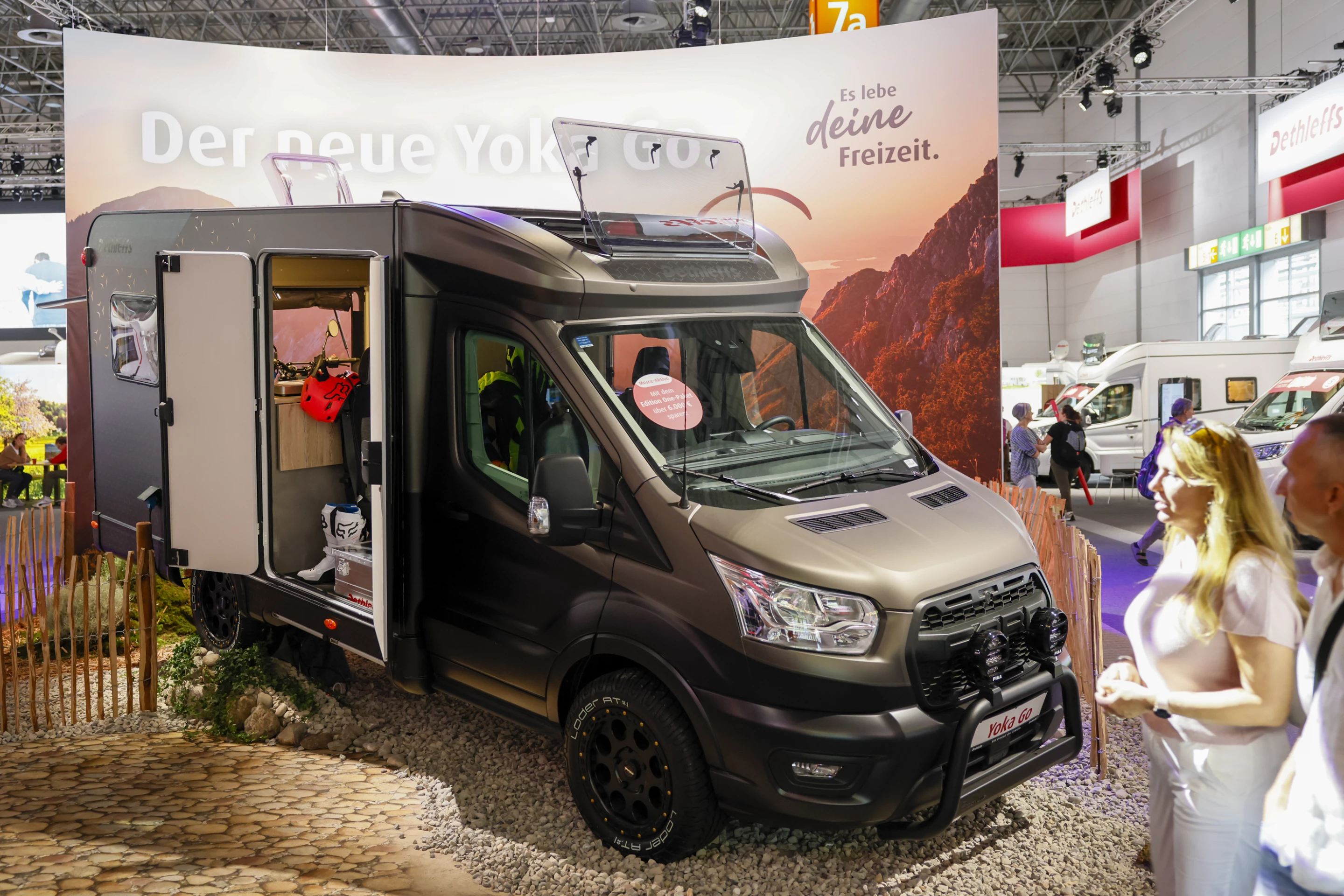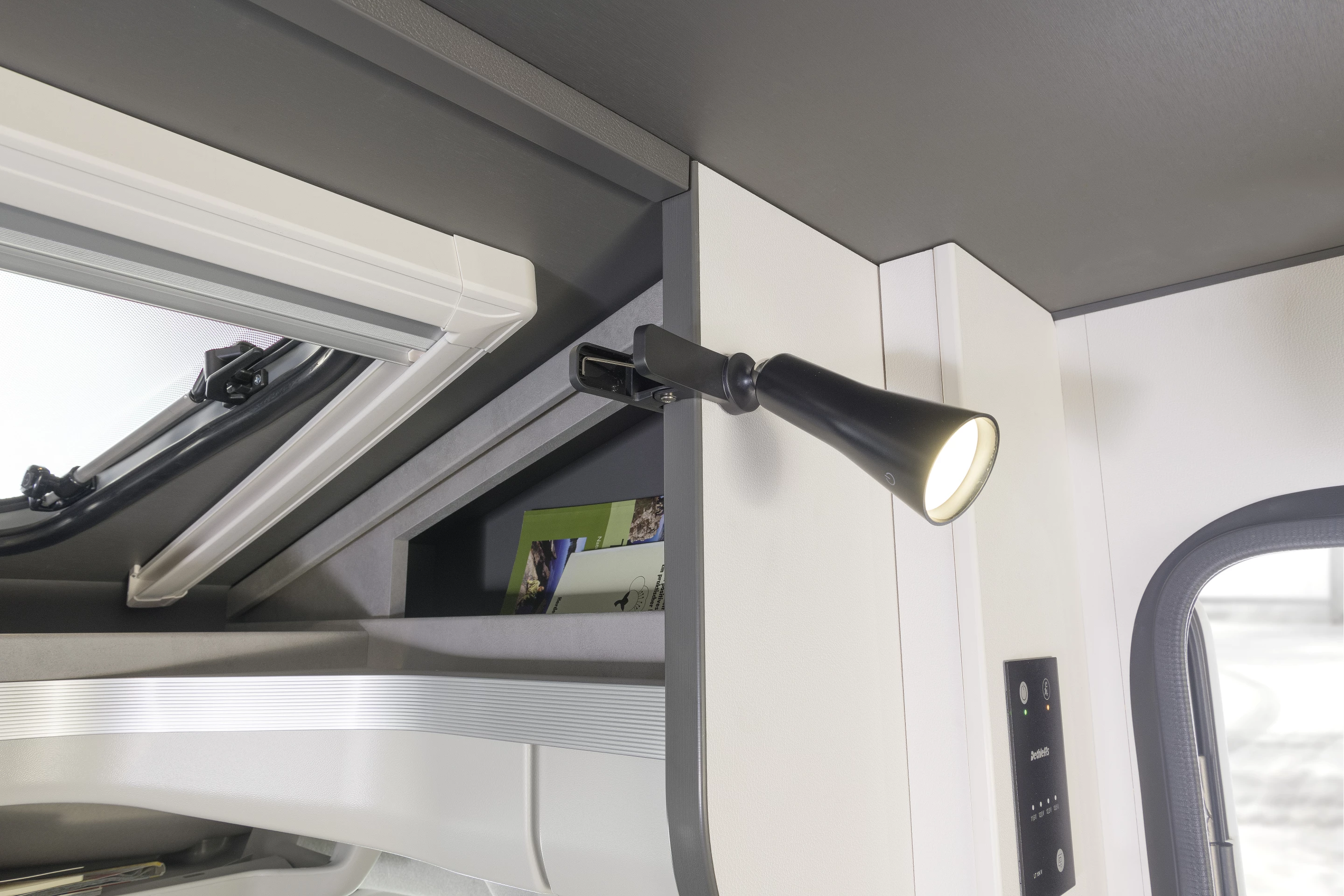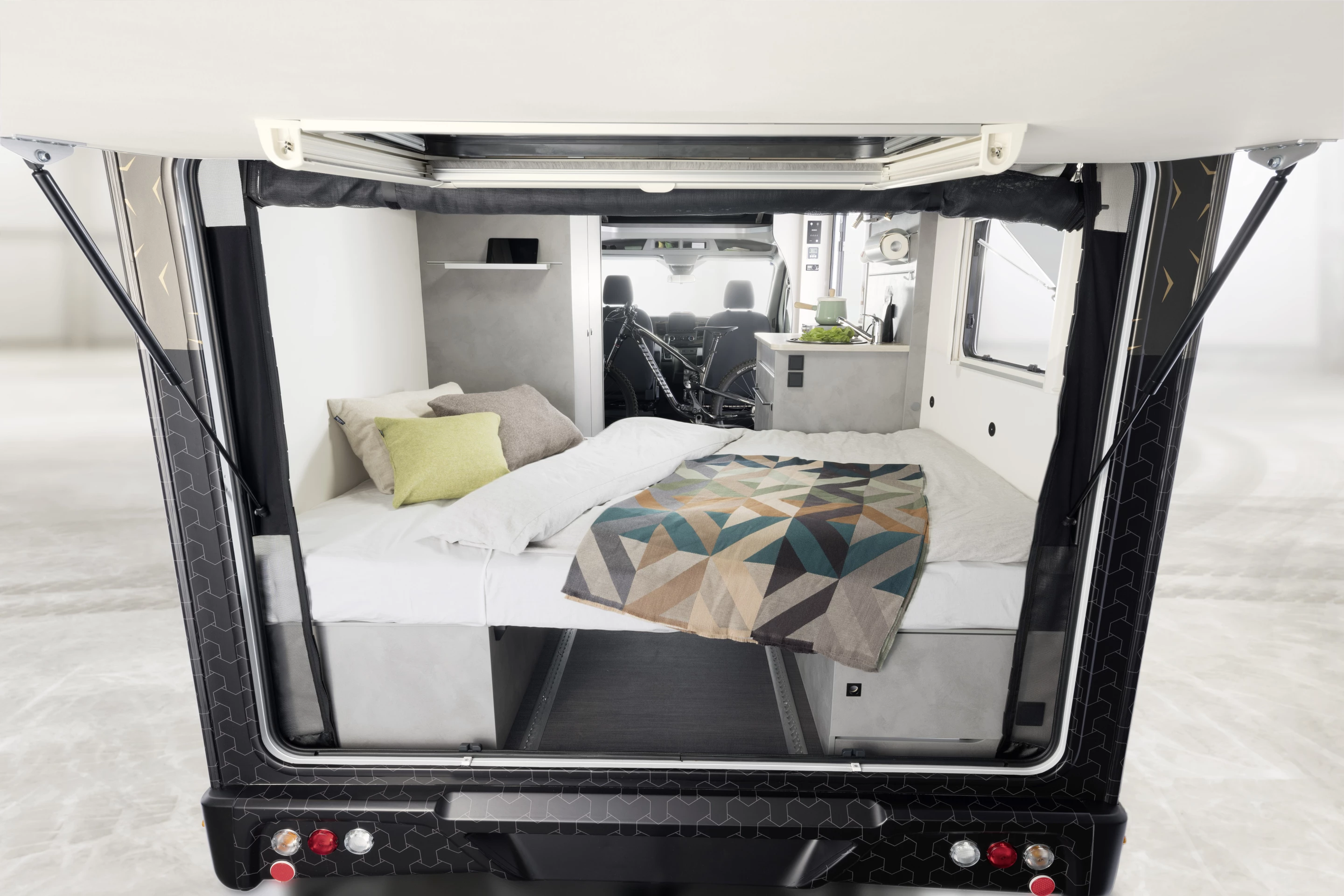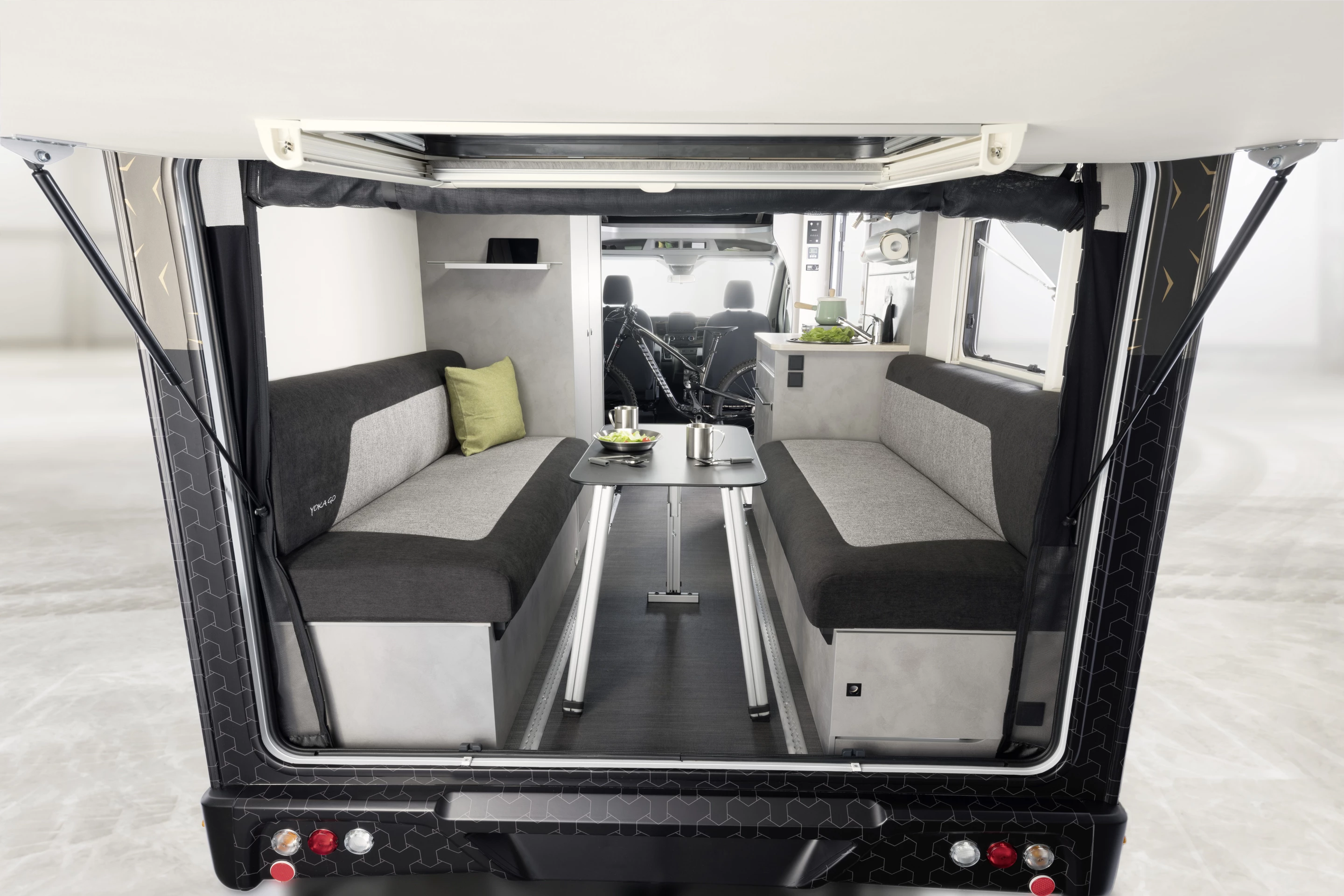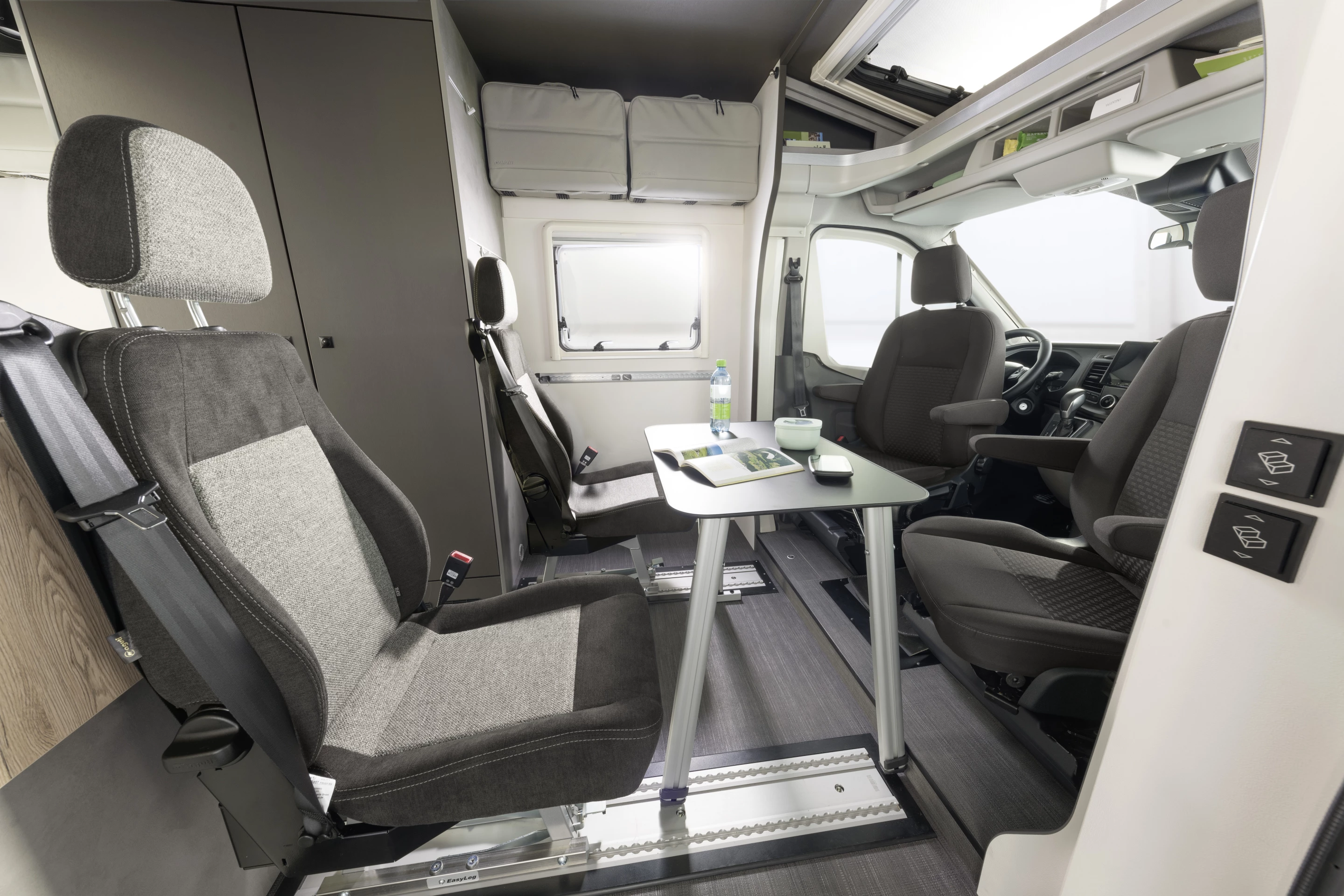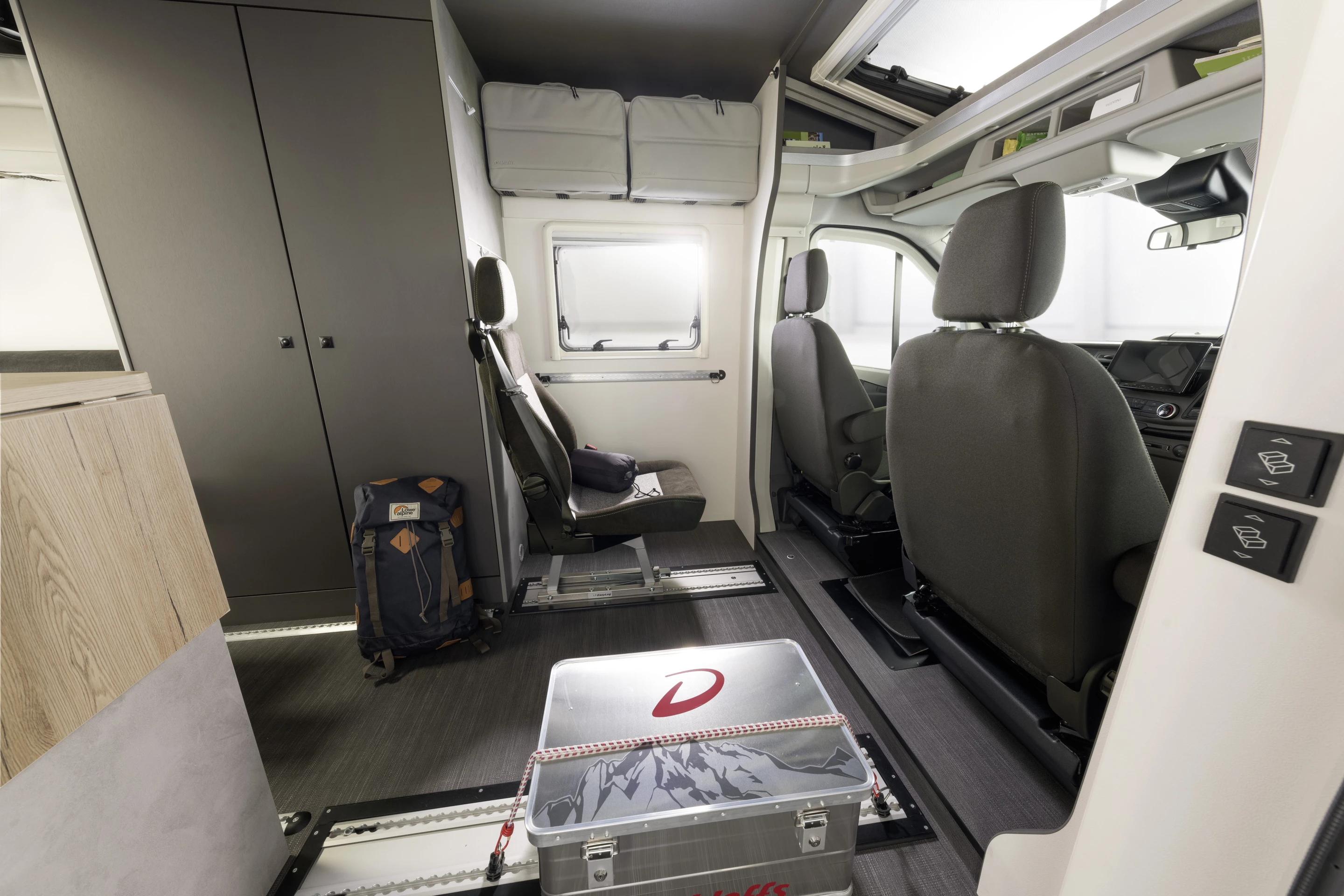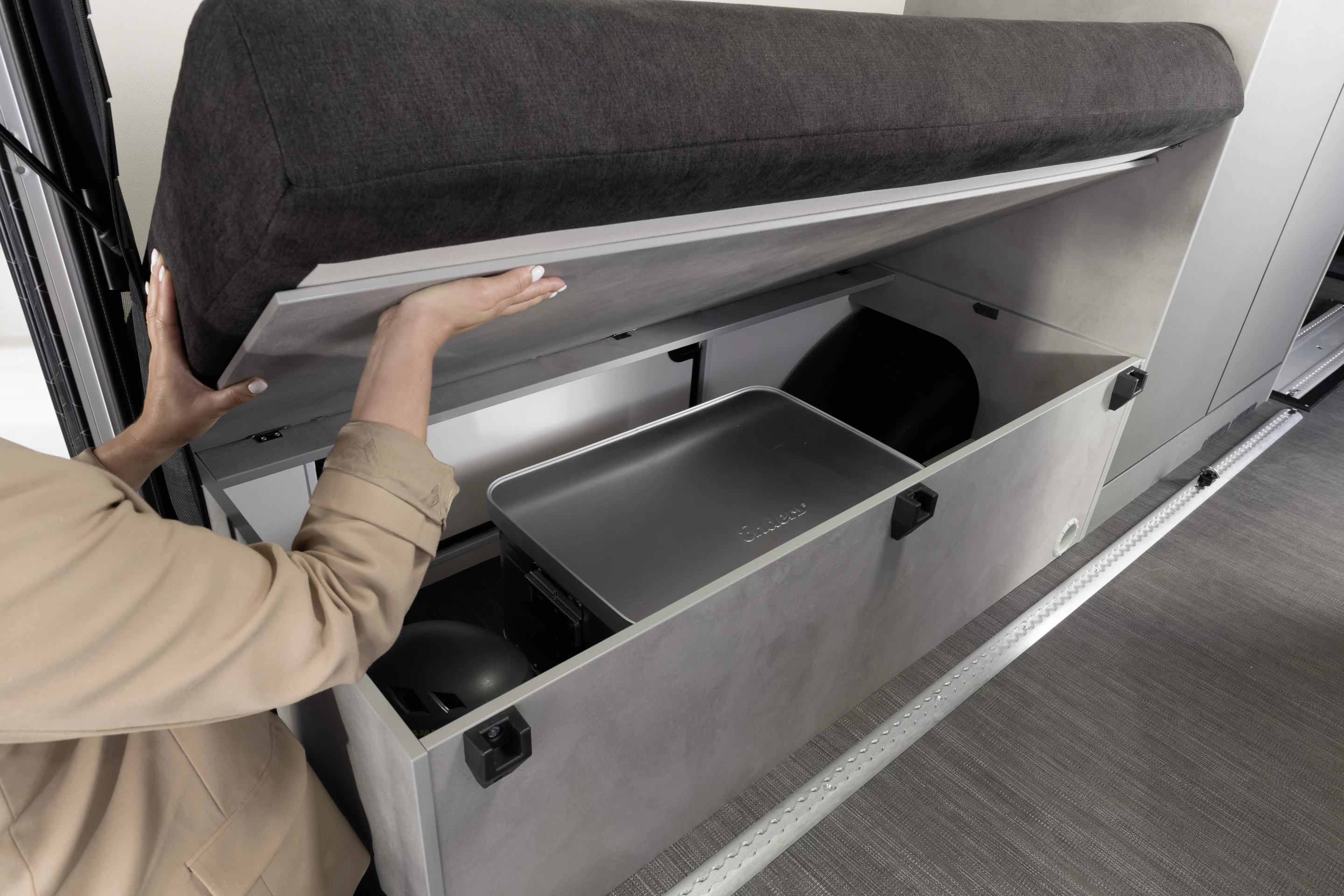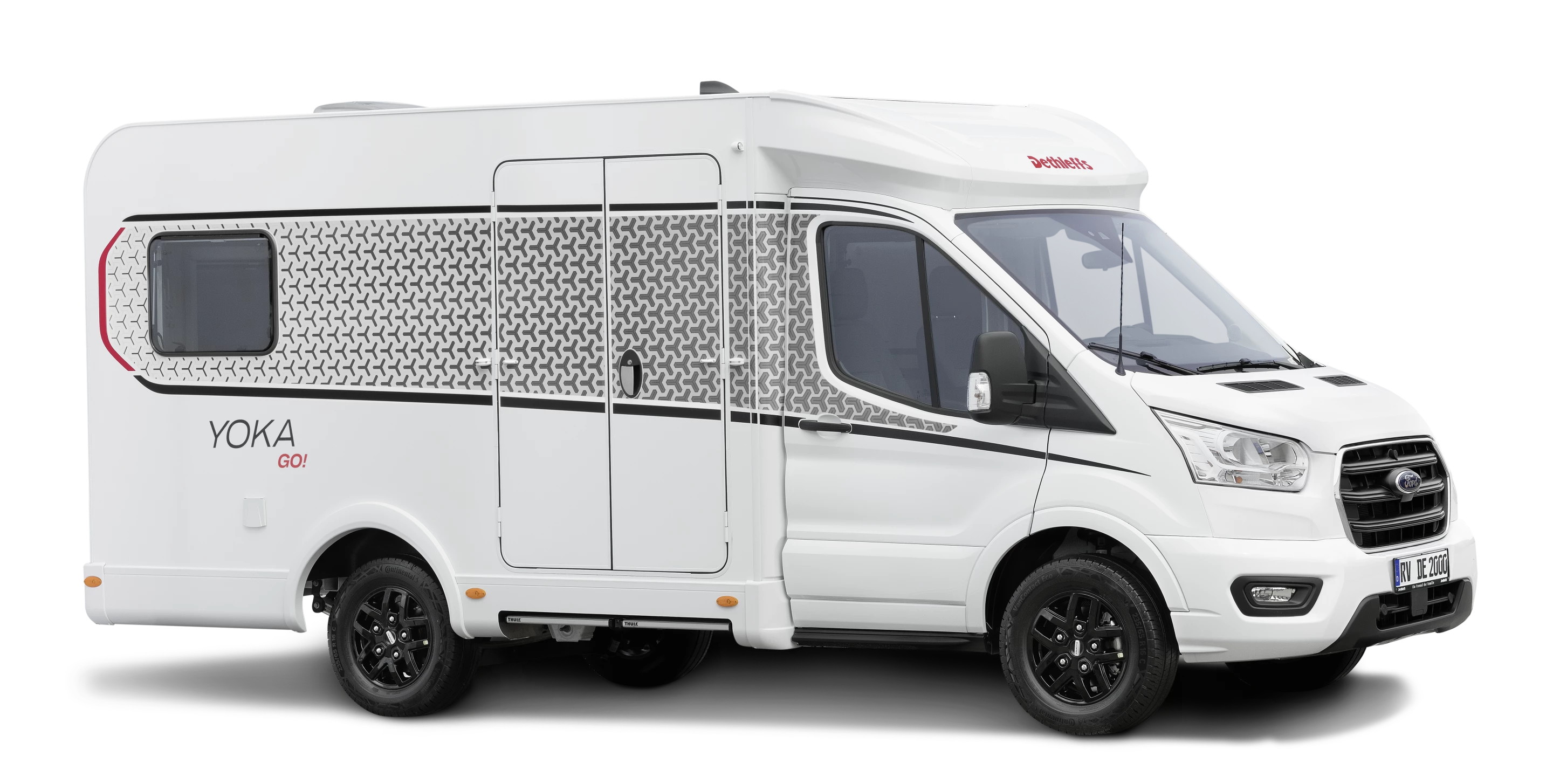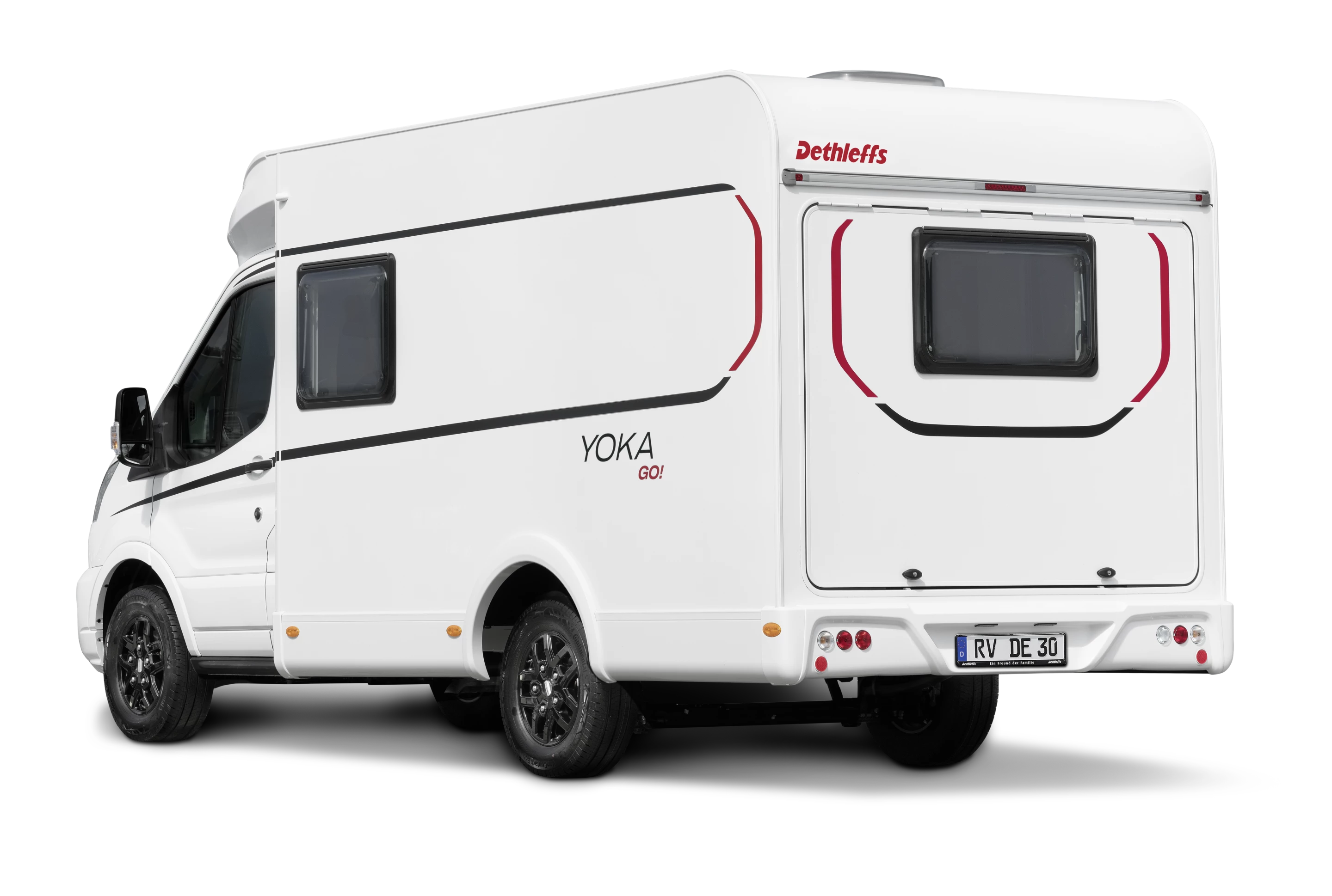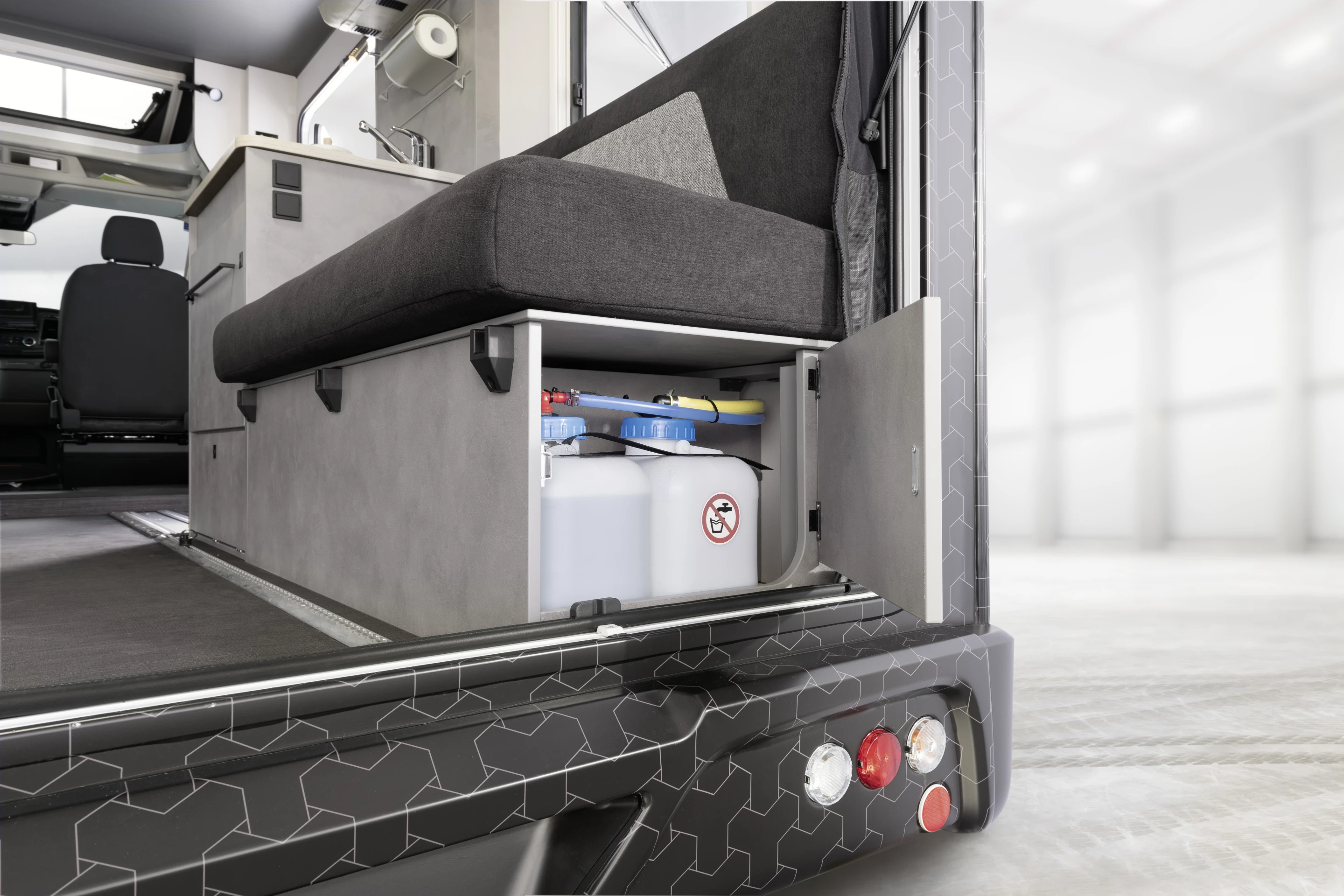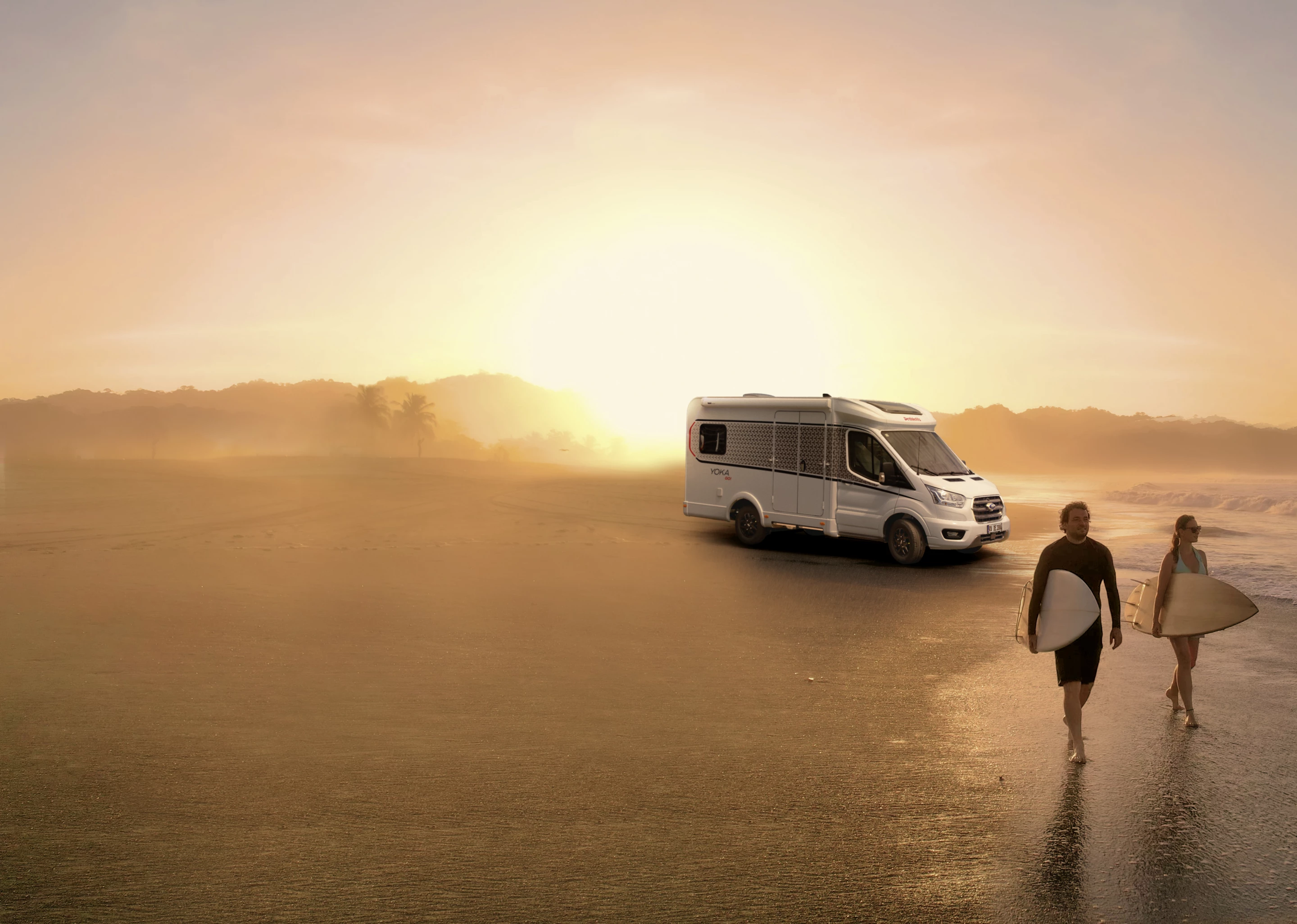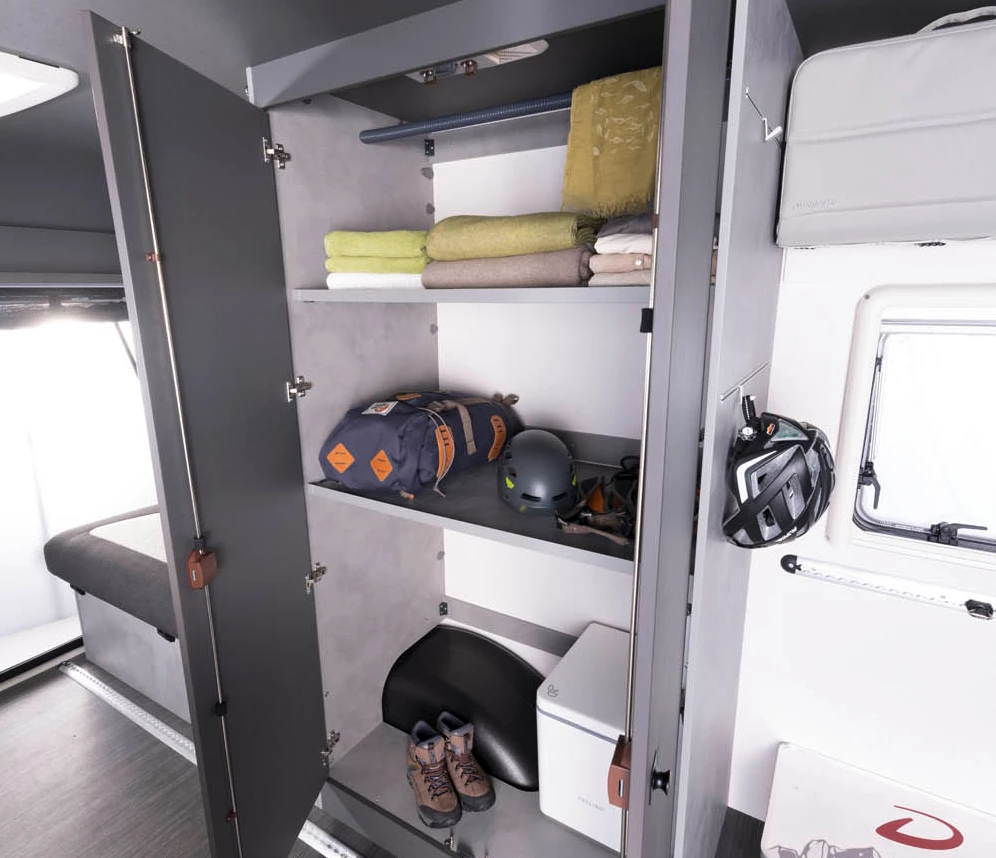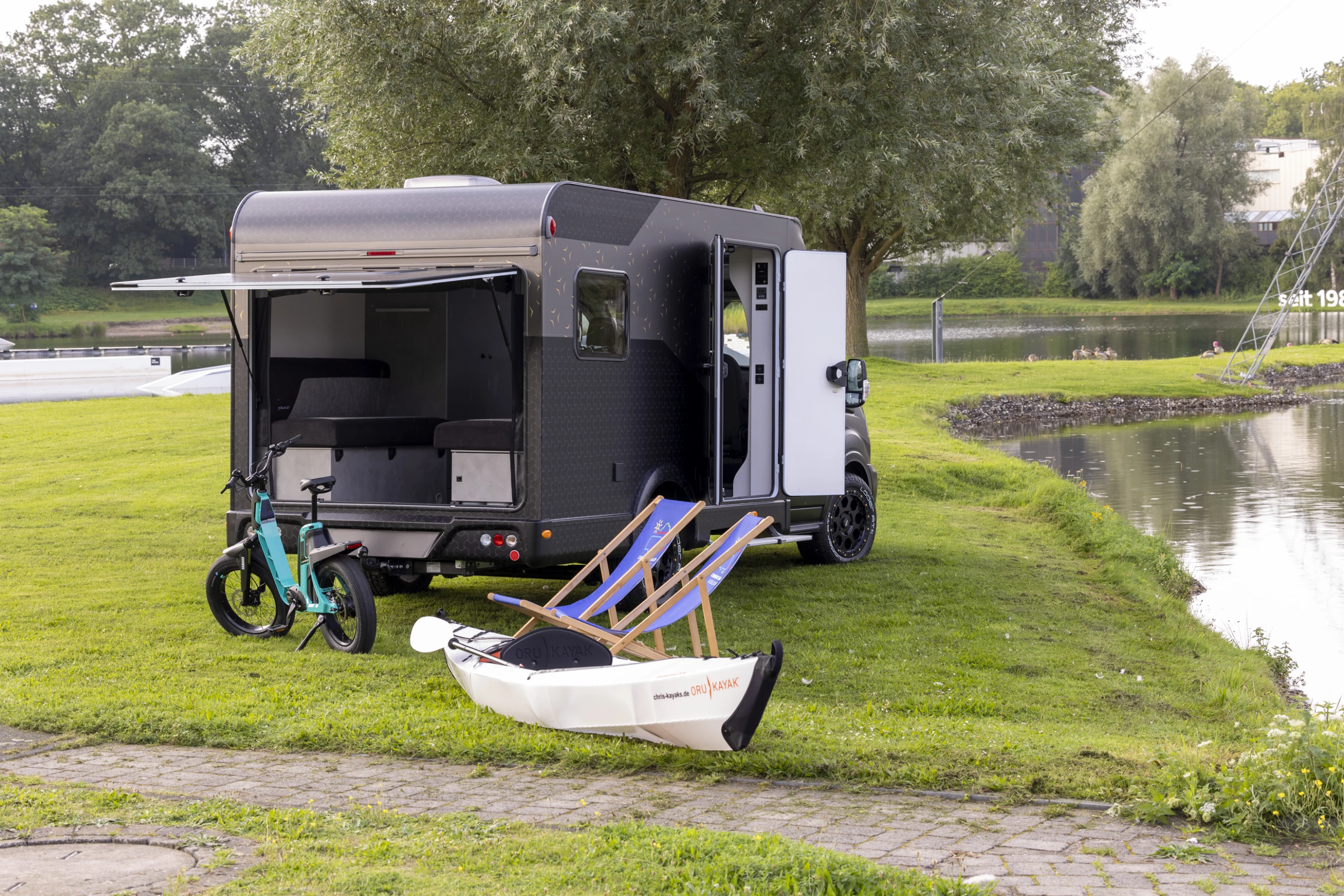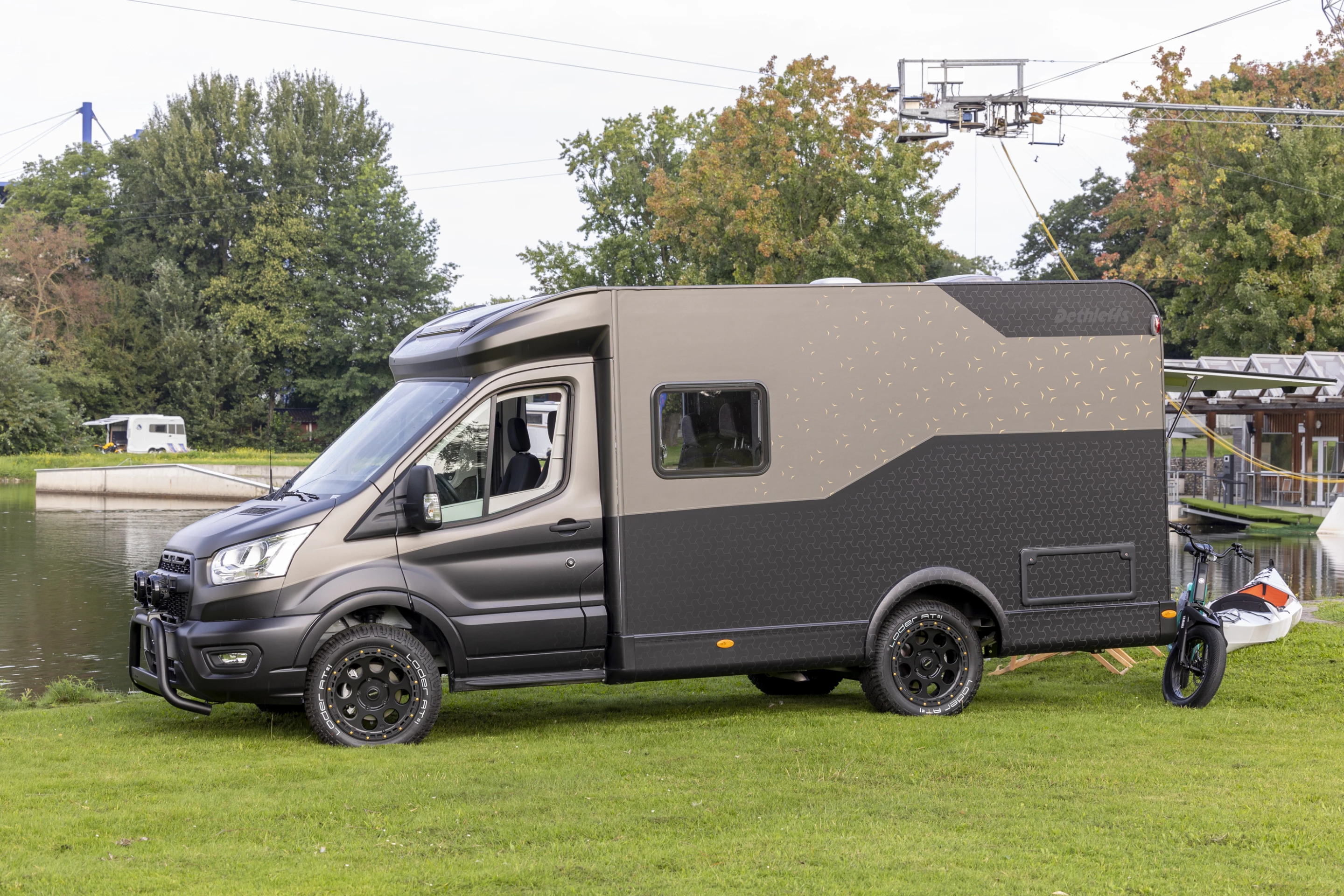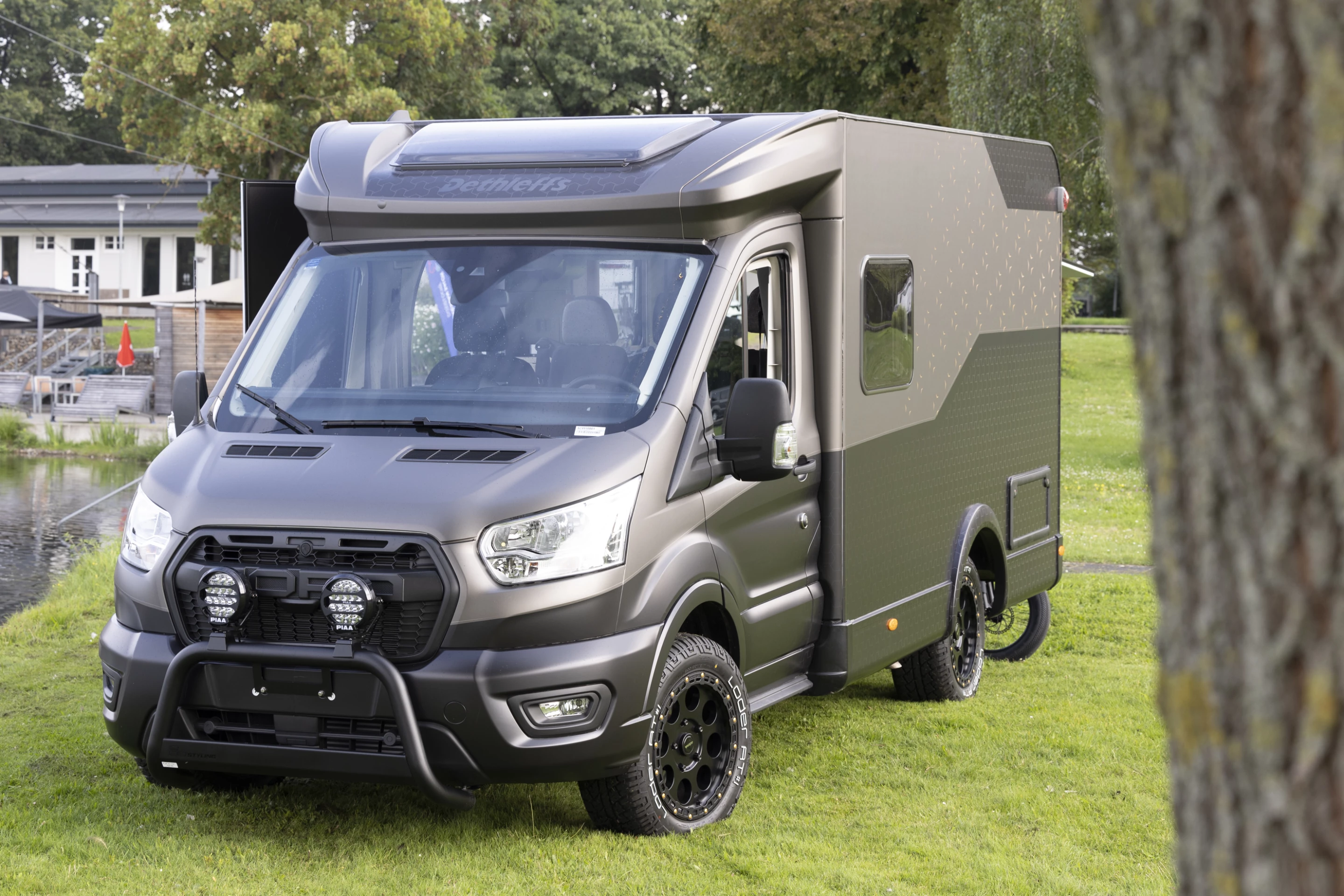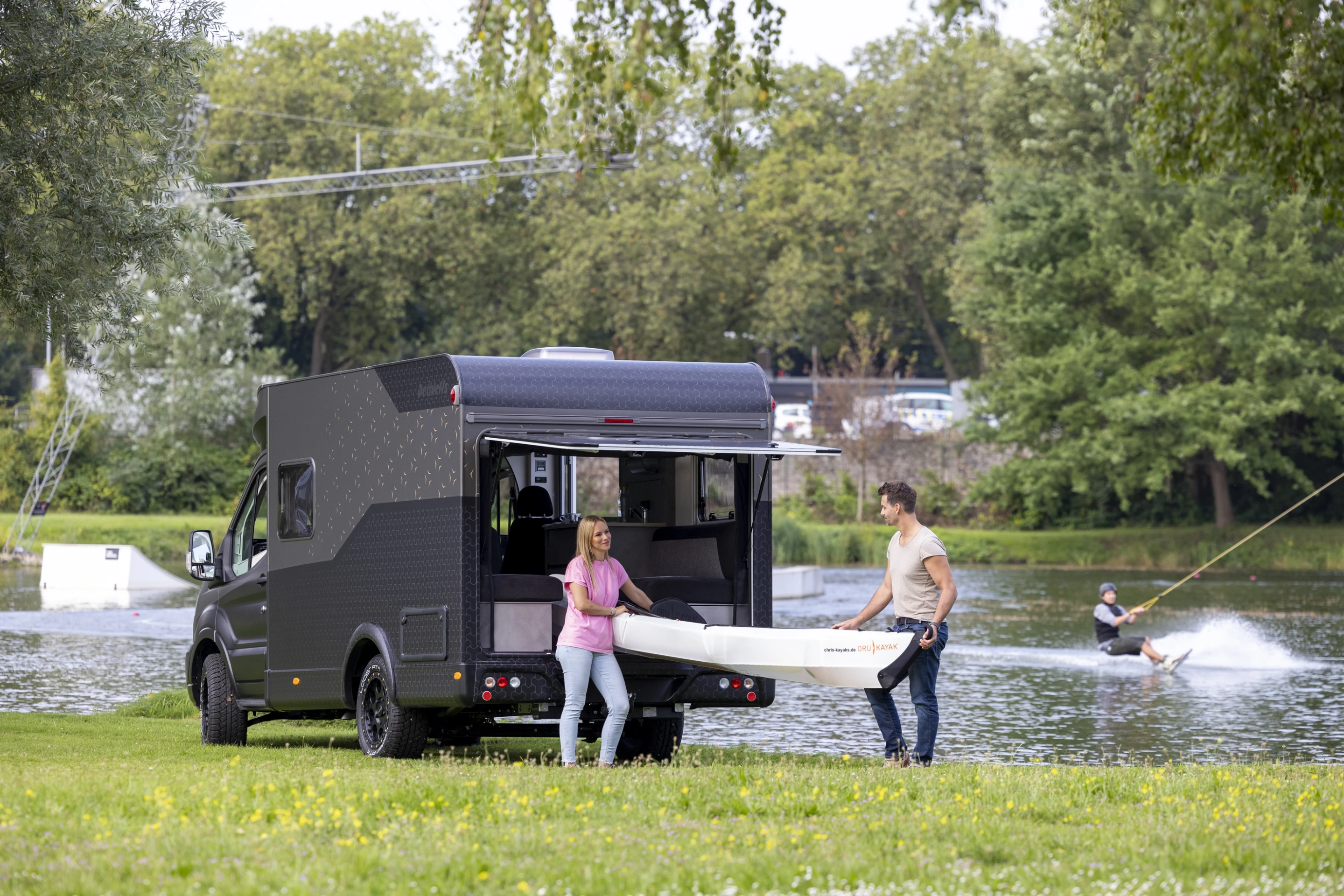Dethleffs has taken the idea of splitting the difference between motorhome and camper van up a notch with its all-new Yoka Go. True to the idea of a plus-size camper van, the Yoka Go has an interior-widening motorhome box with an SUV-like lift-gate for maximum gear-hauling capability. Add in a light, simple floor plan, plenty of airline-style tie-down track and a price tag that undercuts many camper vans, and you have a class-defying Ford Transit RV ready to carry all types and sizes of gear to the water's edge, mountain base or trail head before providing a spacious place to rest weary bodies at day's end.
Germany's Erwin Hymer Group has been one of the leaders in the modern Class B+ motorhome movement, with offerings ranging from the 2016 Hymer Van S 500 to the groundbreaking 2023 Hymer Venture S. Group brand Dethleffs has put its own spin on the concept with the 236-in (599-cm) Yoka Go.
What really sets the Yoka Go apart from other B+ motorhomes is its rear tailgate. Typically motorhome modules are built as sealed four-walled boxes, eliminating the handy rear load area common on camper vans with factory rear doors. That's true whether they're rugged off-roaders built on a high-riding van or truck chassis, lower van-based motorhomes designed primarily for highway touring or neatly integrated van-styled all-terrain motorhomes. While that boxed construction offers weatherproofing and interior layout advantages, it eliminates the type of oversized-gear loading you get with a camper van, limiting your gear selection to what you can maneuver in through the side entry door or stuff into one of the exterior storage lockers.
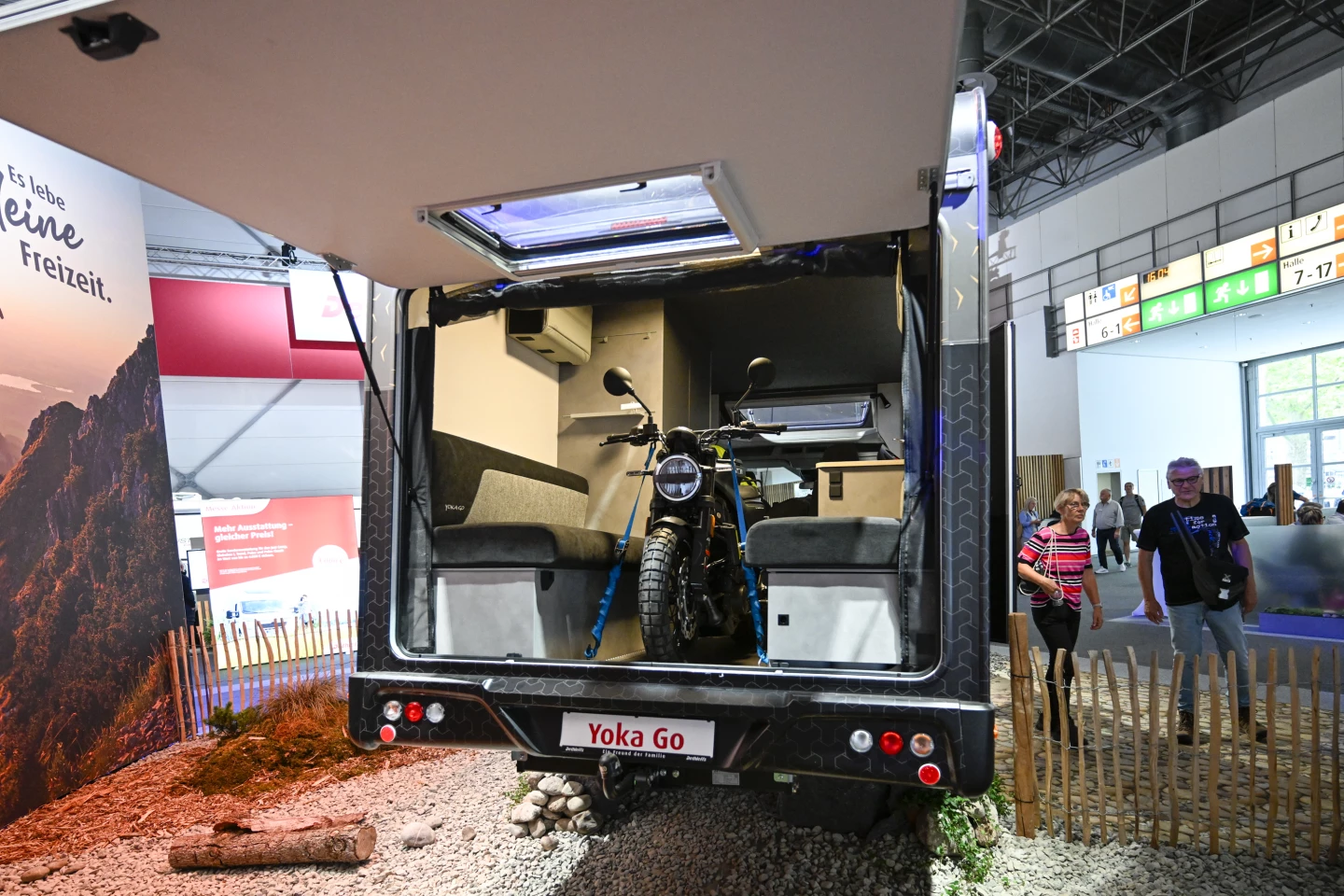
By integrating a full-size lift-gate into its Yoka Go fiberglass motorhome module and installing a dropped chassis extension, Dethleffs offers van-like through-loading inside a roomier motorhome. Couple that with the integrated floor rails, and you can easily load and tie down large gear like mountain bikes, dirt bikes, snowboards and paddleboards.
To further enhance gear-loading capabilities, Dethleffs has added a dual-door side entry that lets campers more easily load cargo through the door, as well as in back. The floor just inside the 45-inch-wide (115-cm) entryway includes its own rails for tying cargo down. Buyers can also secure optional third and fourth belted seats to these rails to support family adventures.
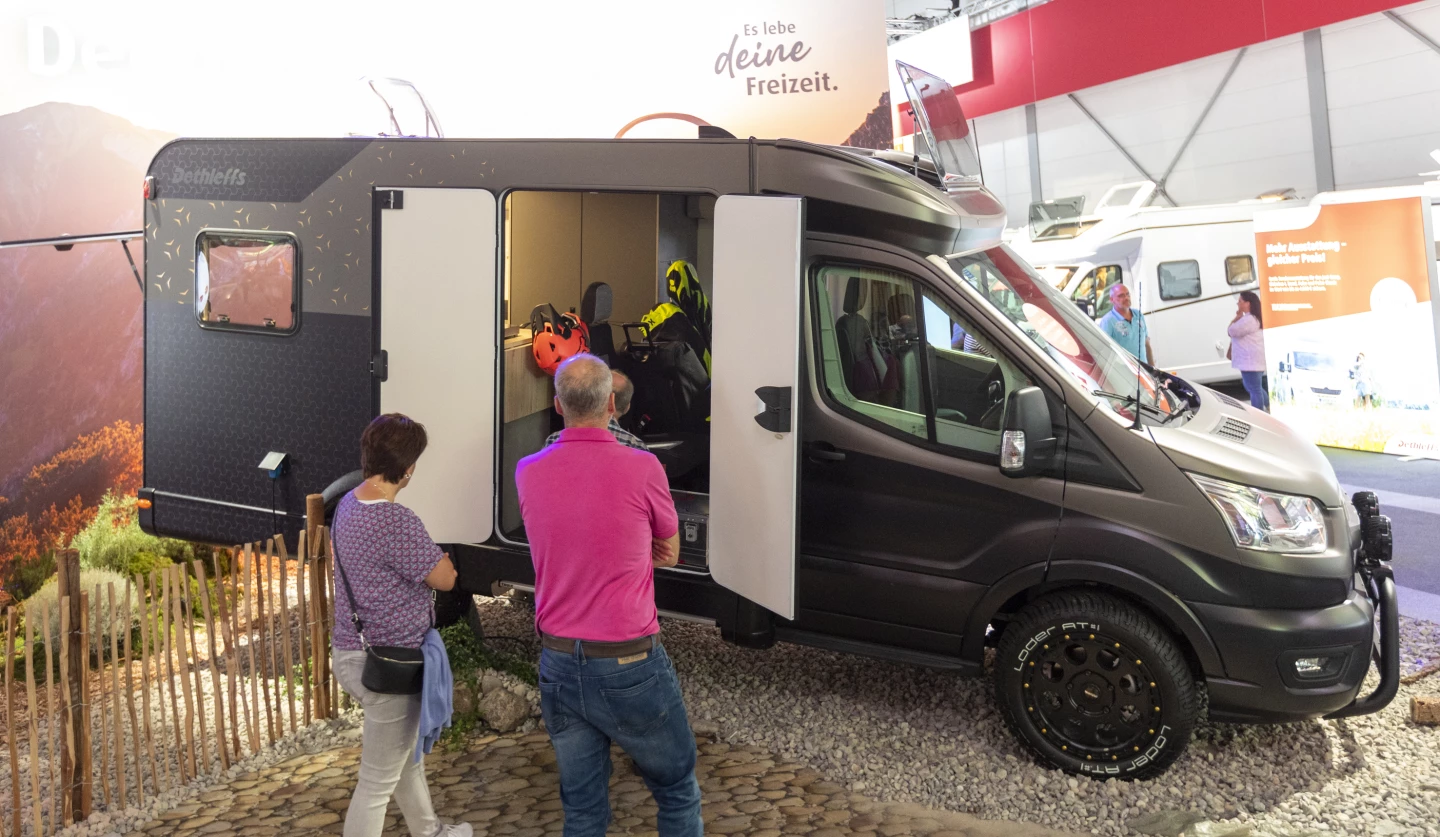
Dethleffs does give up some of the comfort you'd find in other Class B+/C motorhomes in order to add this level of gear-hauling versatility, but the wide, vertically walled fiberglass motorhome module is still roomier than a traditional camper van. The load-through rear tailgate eliminates the raised-bed private rear bedroom common in these types of motorhomes, giving way to a dual-bench rear lounge that converts over to a 53 x 81-in (135 x 205-cm) double bed at night. To keep the center aisle completely free for cargo carry, Dethleffs uses a freestanding indoor/outdoor table for lounge area dining. The table can also be used up front with the swivel cab seats and/or available rear seats.
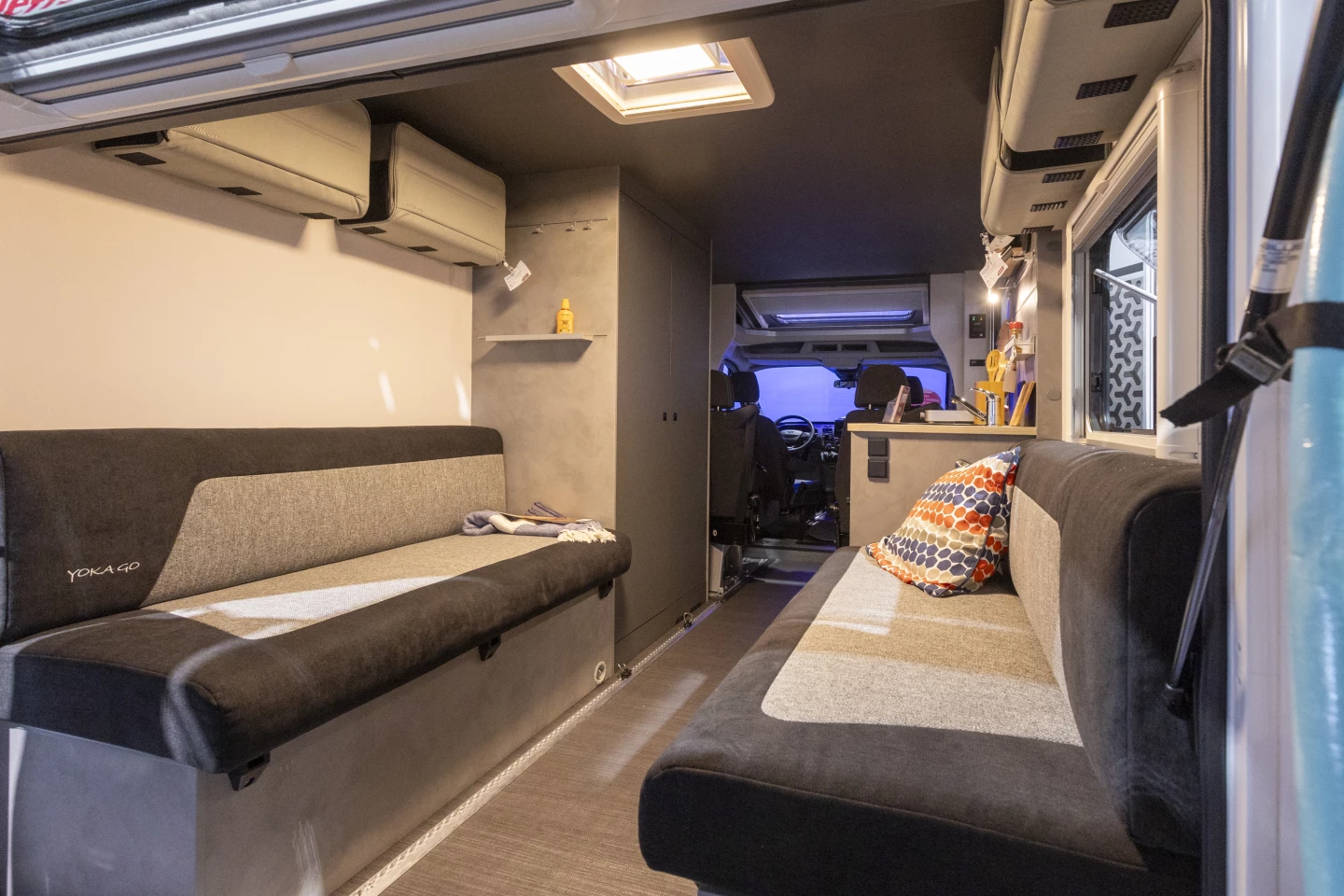
A larger price Yoka Go owners will pay in order to benefit from all that cargo space is the complete lack of bathroom. What appears like it could be a bathroom compartment in the center of the driver's side wall is actually a large double-door wardrobe with loads more space for clothing, sports accessories, and general camping supplies. It will certainly fit a portable toilet, but the lack of a proper private bathroom – even a collapsible one – in a layout that could easily fit one will undoubtedly be a deal-breaker for some buyers.
Keeping the Yoka Go from becoming a mere sleeper RV, with nothing more than a convertible lounge area/bed, is the small kitchen area squeezed between the entry door and the passenger-side rear bench. The narrow block includes a round sink with 10-L fresh and waste water canisters, a portable induction cooker, an under-counter slide-out for an optional fridge box and a flip-up counter extension.
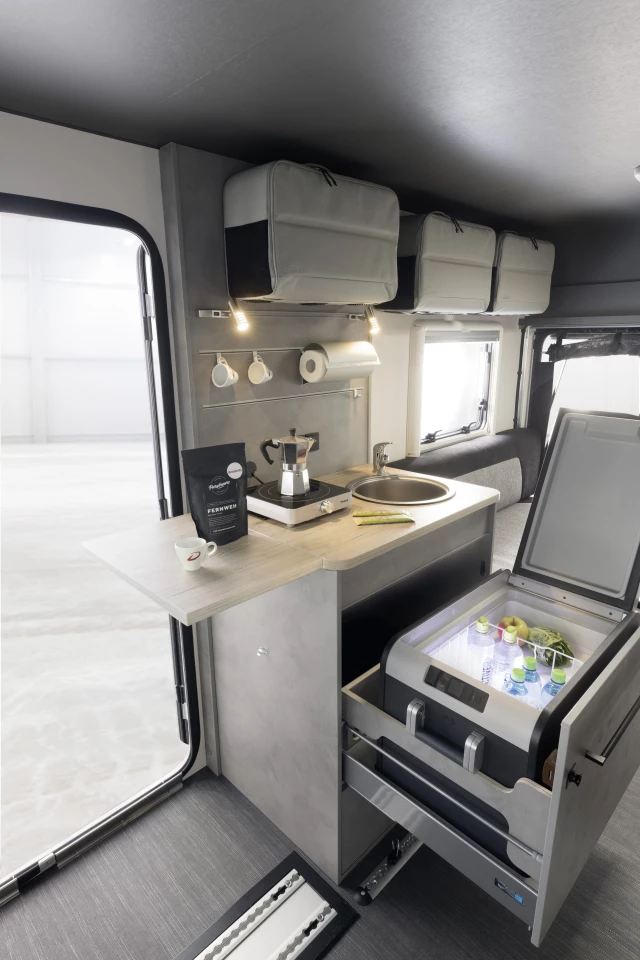
Another aspect of the Yoka Go floor plan that threatens to prove unappealing to some buyers is its two-person sleeping capacity. Like the lack of bathroom, that limitation wouldn't feel out of place on a small camper van but seems strange for a Class B+ RV. Perhaps the company will add a second bed option in the future.
That said, Dethleffs focus with this latest offering is clearly on young multi-sport adventurers, traveling alone or in pairs, who want to load up as much gear as they can fit and get the most out of whatever desert, coast, mountain or canyon they're visiting for a long weekend or longer vacation. The equipment Dethleffs has left out also helps the Yoka Go better appeal to young first-time buyers with a sub-$50K price tag that's lower than many camper vans, large or small. Dethleffs new RV starts at €47,000 (approx. US$50,375) after VAT but before any optional add-ons.
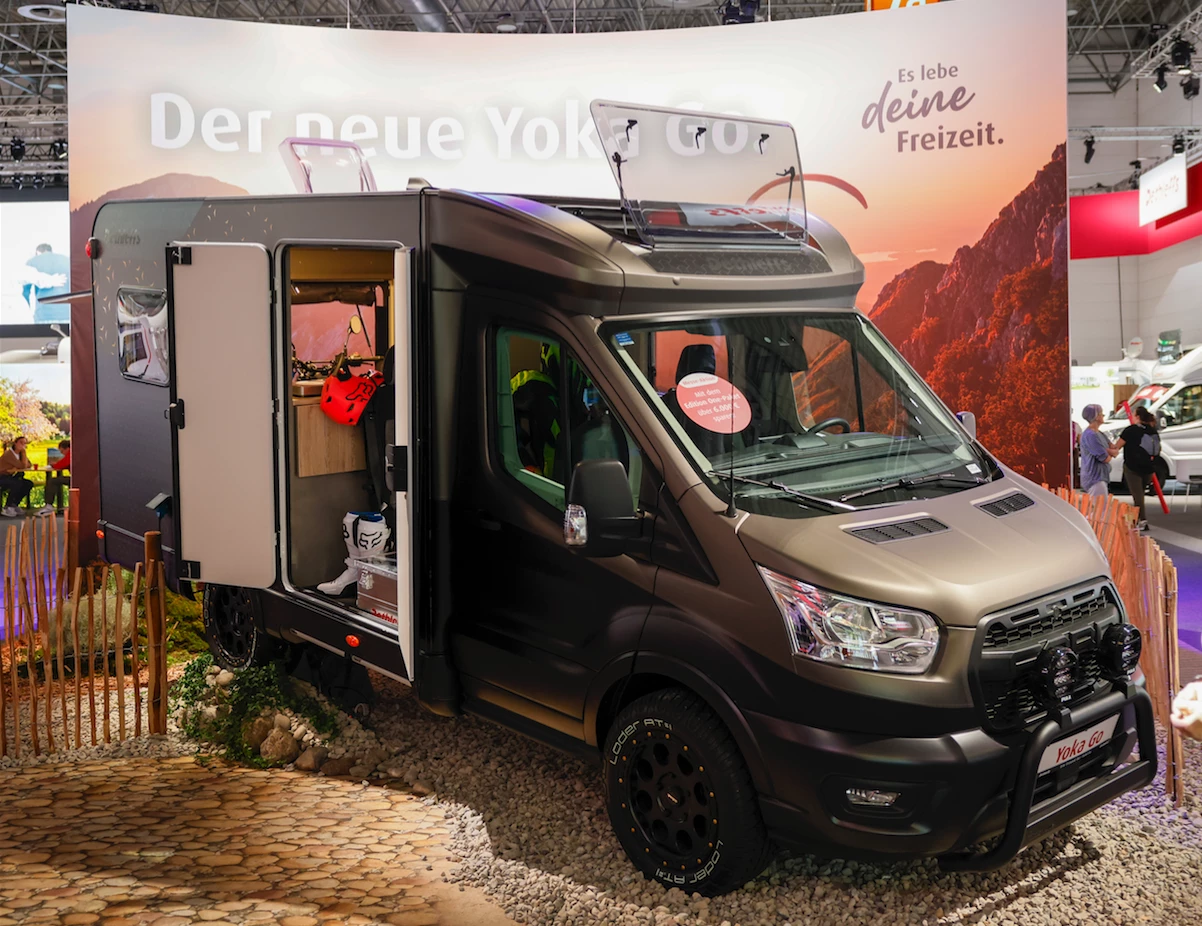
At the Yoka Go's Dusseldorf Caravan Salon premiere, Dethleffs showed the new RV as both a common bright-white road tourer and more rugged, accessorized all-terrainer that appeared (based on the grille) to be built atop a Ford Transit Trail. It has not listed pricing information for the latter, but the basic model is powered by a 129-hp 2.0-liter EcoBlue diesel engine and six-speed manual transmission. An automatic transmission and more powerful 153-hp engine are available optionally.
Source: Dethleffs
